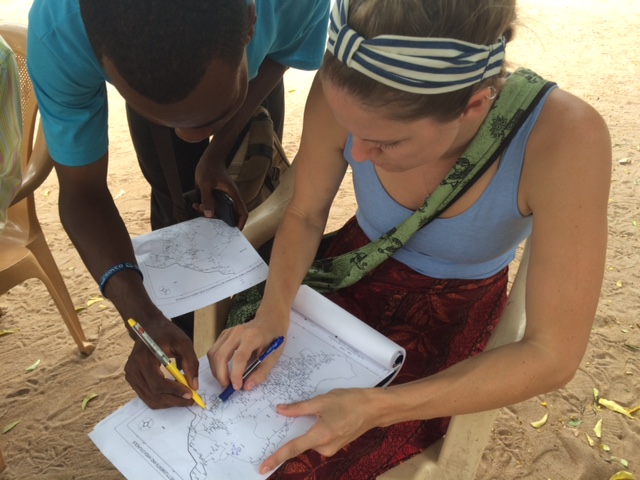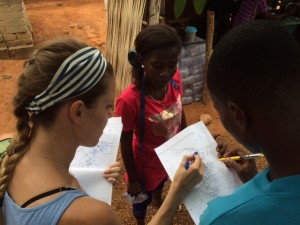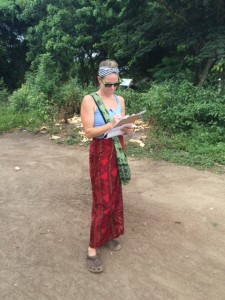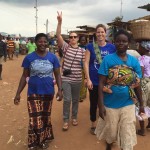Today was a great day, the first full day for our August 2015 team, which includes three group members who’ve never been to Ghana (or Africa) before: Heather, Kristen, and Kirsten. It was also our first day of village visits, a trip tradition where we drive around to as many Kekeli communities as possible and visit the women individually.
Over the years, we’ve found these visits to be so very important for a number of reasons. First, they connect us to the communities where the Kekeli women live. This serves to keep us informed and relevant. We always learn new things, both small and large, about the reality on the ground for the women and the people they serve. Second, it boosts the reputation of the Kekeli women within their communities. It isn’t often that visitors, much less those from out of country, come to their homes to say hello. While we don’t relish this impact, it is actually quite important. Finally, it helps us plan for the future.
Today, for the first time, we set out to map the Kekeli communities. Heather, our monitoring and evaluation director, is joining us on this trip for the first time. She has brought her skills and enthusiasm to this new project. Godwin, our communications director turned jack-of-all-trades, proved himself also quite skilled at cartography today (as the photos attest).
In short, we are attempting to create a physical map of the district which includes all the communities where the Kekeli women live, additional communities nearby where they travel to teach, as well as all the spaces in-between, devoid of Kekeli representation. We are also attempting to map community public health nurse sites, along with clinics and hospitals, to get some sense of areas to which referral to higher levels of care may be cumbersome.
To accomplish these goals we’ve obtained a map of the Akatsi District (prior to the division of North and South) which has been very helpful to our work. We’re also using Geo-tagging software and talking extensively with the women about the realities they face. It turns out that many of them are attempting to cover more ground than is feasible, many communities are not on the map at all, and indeed there are large areas of the district where no Kekeli woman or other medical care exists.
Today was both inspiring, enlightening, and a whole lot of fun. We nearly ran aground several times in the minibus, traversed some dense thatch on foot and by car, and ate the local roadside food (a first for our new volunteers who have proven up for just about anything). We also mapped nearly half the Kekeli communities. This will be essential as we expand, hoping to reach the neediest (and least convenient) communities going forward.
– Jason






